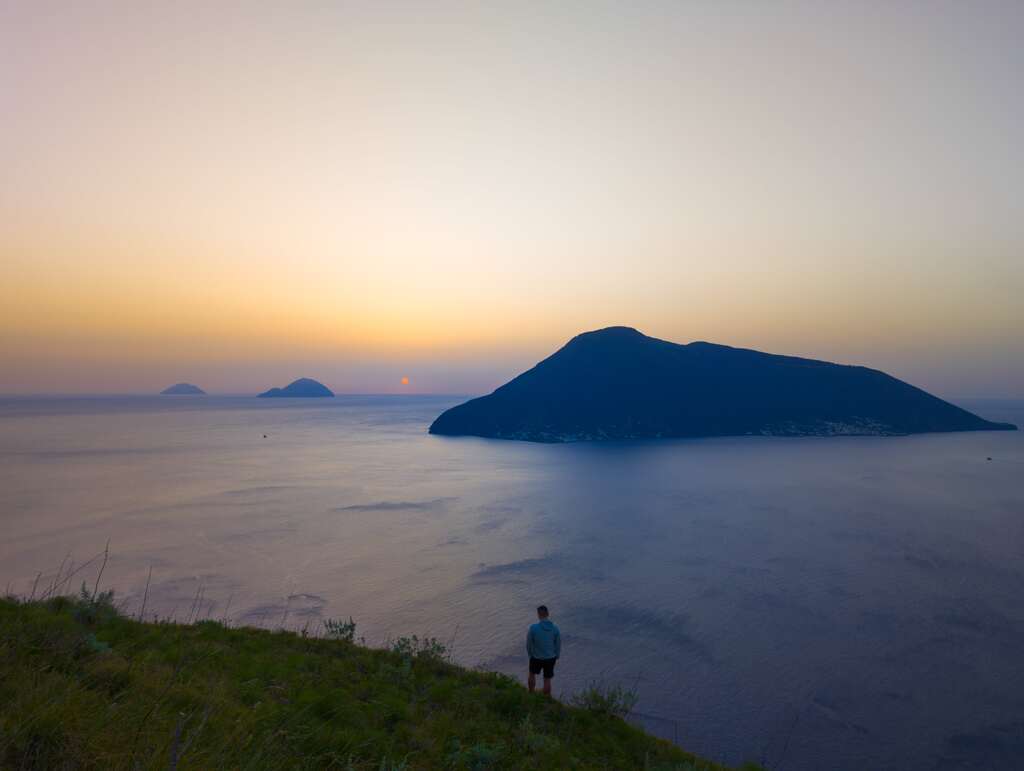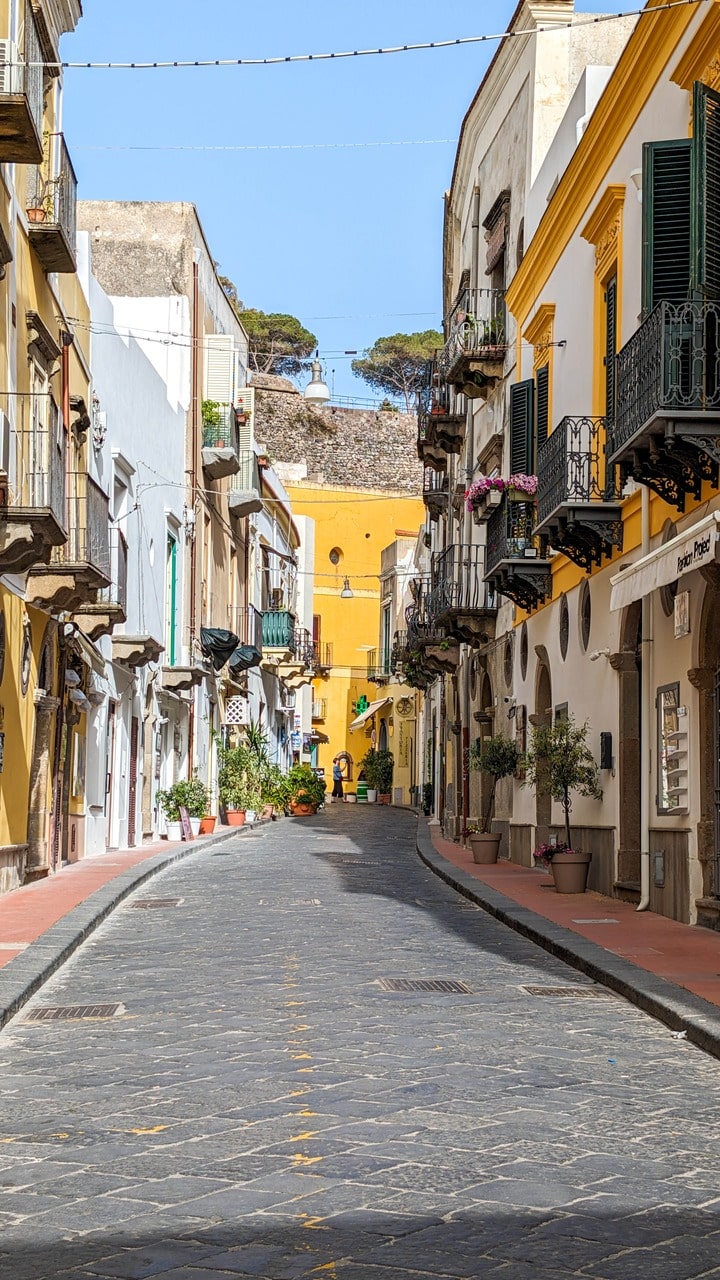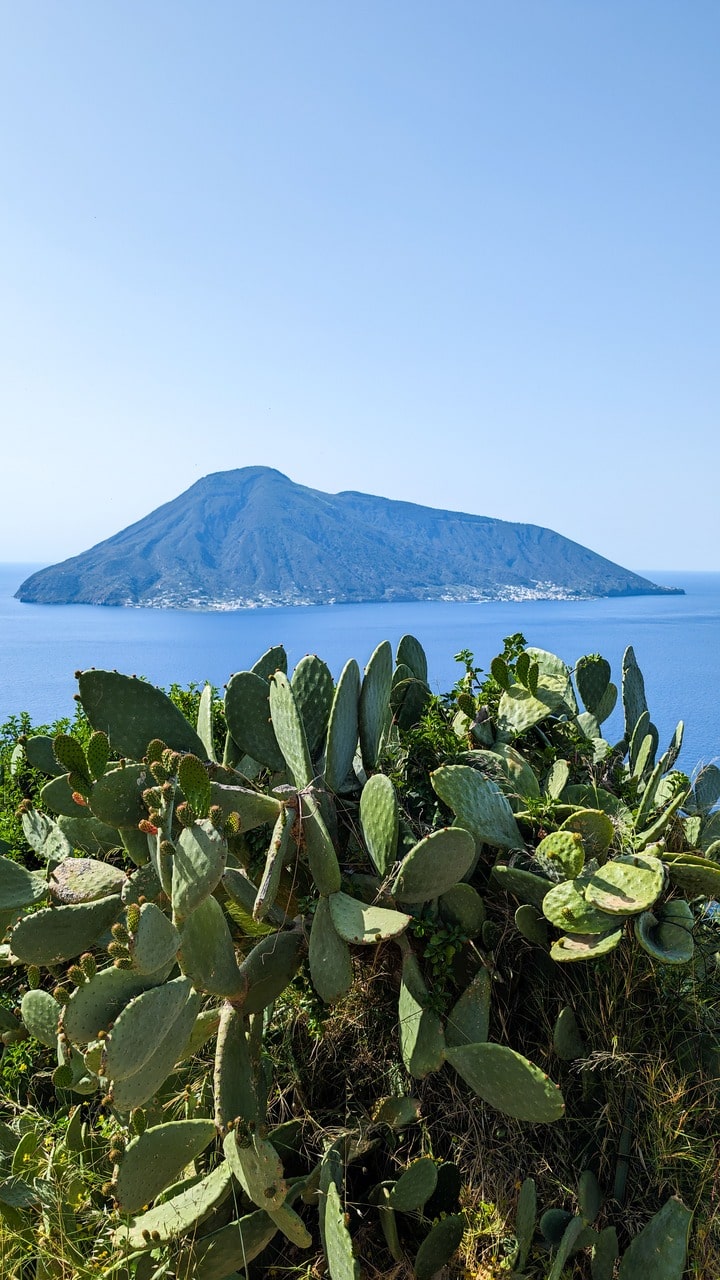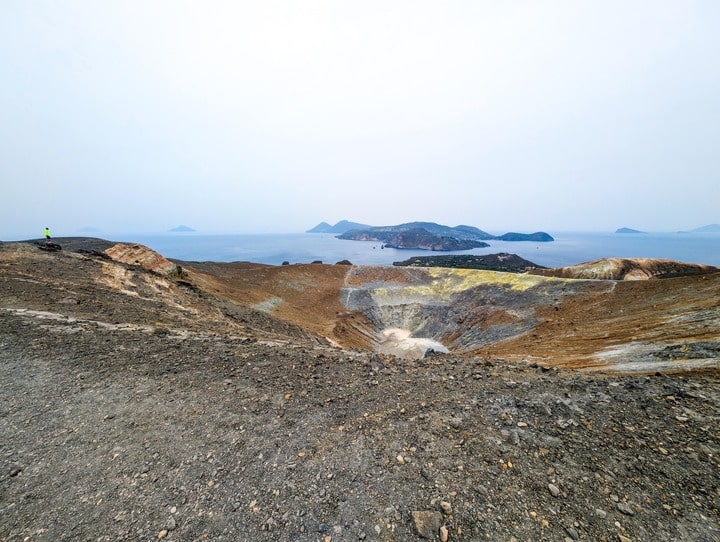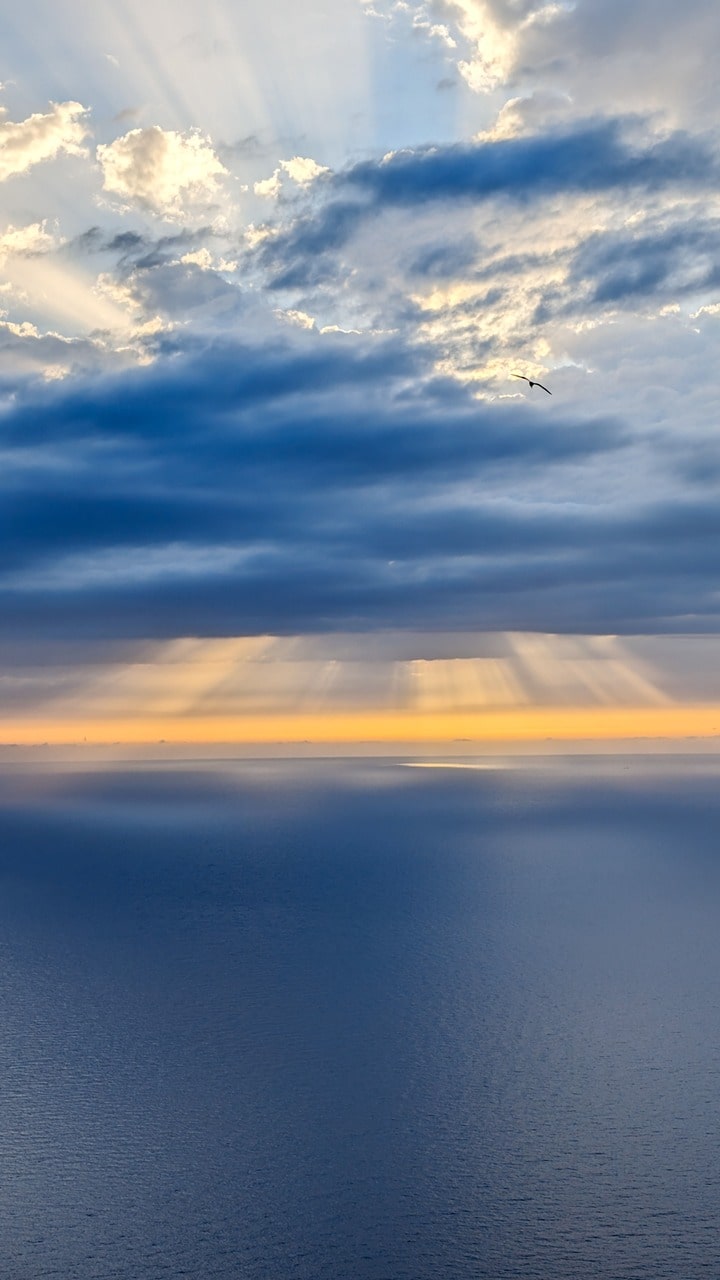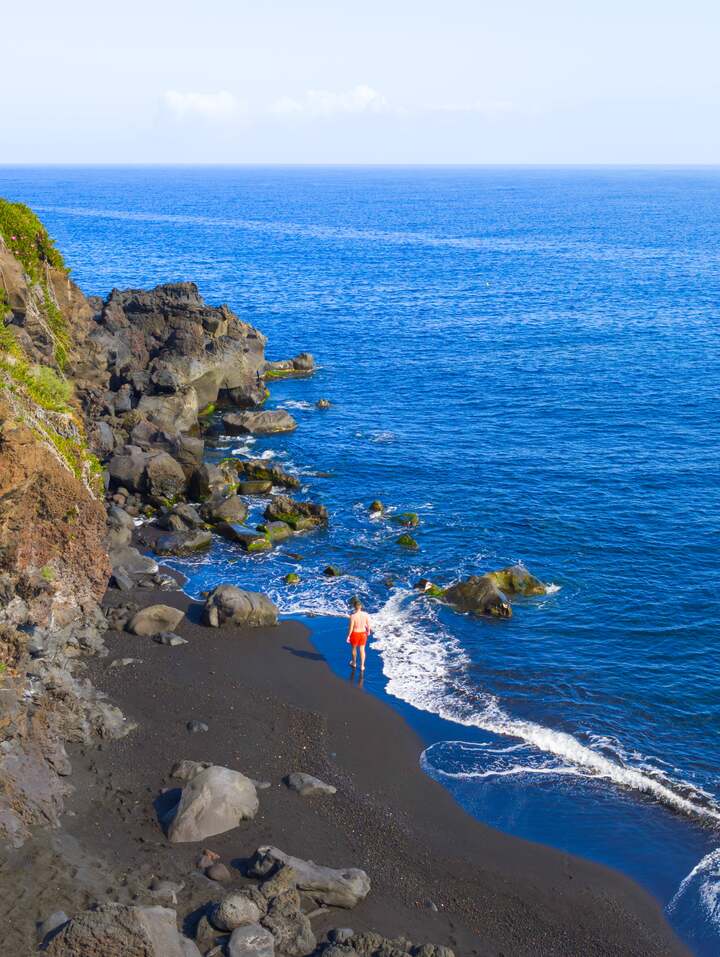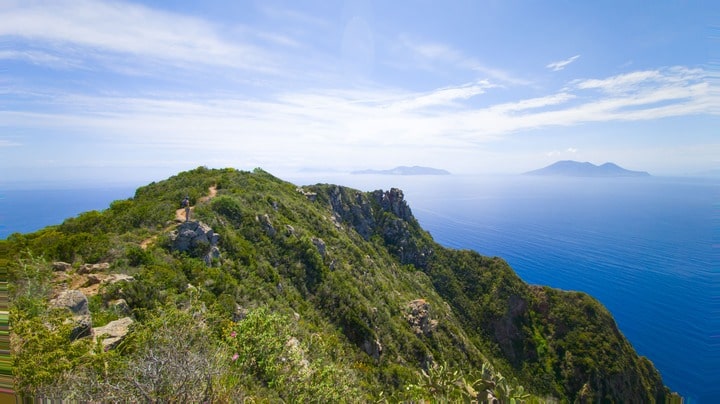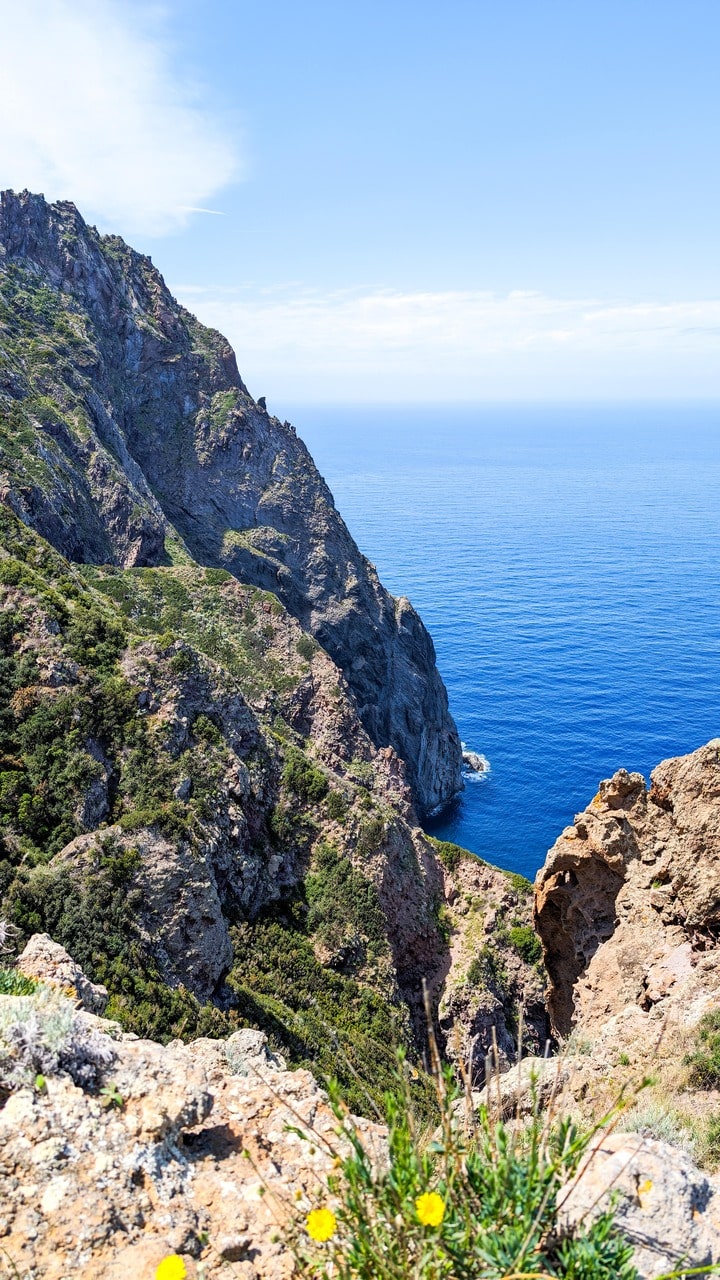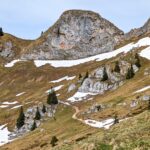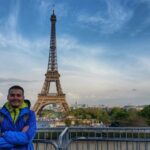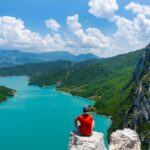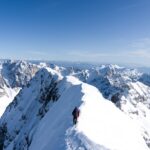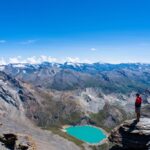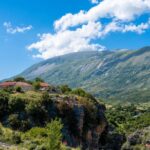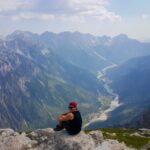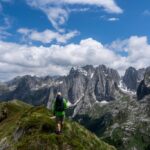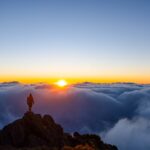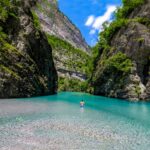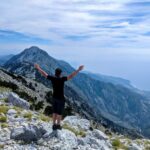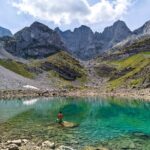The Aeolian Islands rise like a broken necklace off the coast of Sicily — seven volcanic fragments shaped by fire and sea. Reaching them feels like a small adventure: from Catania to Messina, a quick hop to Milazzo, and finally a speedboat that cuts across open water toward Lipari, the largest island and perfect base for exploring the archipelago.
🌴 Lipari — Circling the Island
We stayed two days on Lipari, a blend of relaxed Mediterranean charm and rugged coastal beauty. The road circles the island, giving access to beaches, viewpoints, and small bars tucked between whitewashed houses.
Highlights of the loop:
- Belvedere da Graziella – sweeping views over the Tyrrhenian Sea.
- Spiaggia del Gabbiano and Spiaggia Acquacalda – quiet beaches with turquoise water and pale volcanic cliffs.
- Chiesa Vecchia di Quattropani – the perfect sunset point; the horizon glows red while the nearby islands fade into shadow.
- Eden Bar – classic Lipari: local wine (Aperol), sea breeze, and the kind of simplicity you remember later.
Lipari feels lived-in, not staged. You can swim, drive, or walk almost anywhere — it’s an island that still moves to its own rhythm.
🌋 Vulcano — The Island of Smoke
A short ferry from Lipari brings you to Vulcano, where the air smells faintly of sulfur and the ground hums with heat. The main trail climbs the crater — a hike that feels otherworldly from the first step.
Trail data:
- Distance: 6.75 km
- Elevation gain: 374 m
- Elevation loss: 369 m
- Max elevation: 398 m
- Difficulty: Moderate
- Type: One-way
The last stretch circles the rim, where steam seeps from vents and the view opens to the whole Aeolian chain — Lipari below, Stromboli in the distance, the sea shining like molten glass.
Descending as the light turns golden, the entire crater seems to breathe.
Map:
🌑 Stromboli — Fire Under the Stars
Stromboli is raw energy. The black sand, the sulfur scent, the constant pulse of the volcano — it feels alive in a way no other place does.
We hiked near sunset, climbing toward the active crater while the sky shifted from orange to violet. Every 15 minutes, a small eruption — flame and ash against the darkening sky. It’s humbling and hypnotic.
Trail data:
- Distance: 8.42 km
- Elevation gain/loss: 368 m
- Max elevation: 386 m
- Difficulty: Moderate
- Type: Loop
Later, we cooled our feet in the volcanic black sand beach, still warm from the day’s heat — a reminder that this island is literally alive beneath your feet.
Map:
🌿 Panarea — The Small Gem
Panarea feels softer, greener, and more elegant than its volcanic siblings. It’s small enough to walk across, but full of surprises — fumaroles, quiet coves, and high ridges with sweeping sea views.
We hiked the island loop: Spiaggia Fumarole, Punta del Corvo, and Punta Cardosi — a mix of coastal paths and steep climbs through Mediterranean scrub.
Trail data:
- Distance: 7.67 km
- Elevation gain/loss: 463 m
- Max elevation: 423 m
- Difficulty: Moderate
- Type: Loop
At the summit, you can see nearly the entire archipelago — a chain of dark peaks floating in a blue haze.
That night, strong waves kept us one extra day. It happens often here — ferries and small boats depend on the wind. The Aeolian Islands teach patience.
Map:
⚓ Practical Notes
- Best season: May–June or September–October.
- Access: Ferries and hydrofoils from Milazzo, Messina, or Naples.
- Transport: Scooters or small cars on Lipari; on the other islands, everything is walkable.
- Weather: Hot sun, little shade — start early, carry water.
- Shoes: Proper trail shoes (volcanic gravel is slippery).
- Local food to try: Capers from Salina, granita with brioche, fresh swordfish.
- Keep in mind: Ferry schedules often change with weather; always check return options in advance.
🌅 Reflections
Each Aeolian island feels like a different element:
Lipari – earth and sea.
Vulcano – fire and smoke.
Stromboli – darkness and light.
Panarea – calm and wind.
Together they form a living map of what the Mediterranean once was — wild, unpredictable, and deeply human.
The Aeolian Islands don’t just offer views; they remind you that nature isn’t a backdrop — it’s a force.
Last modified: October 17, 2025


